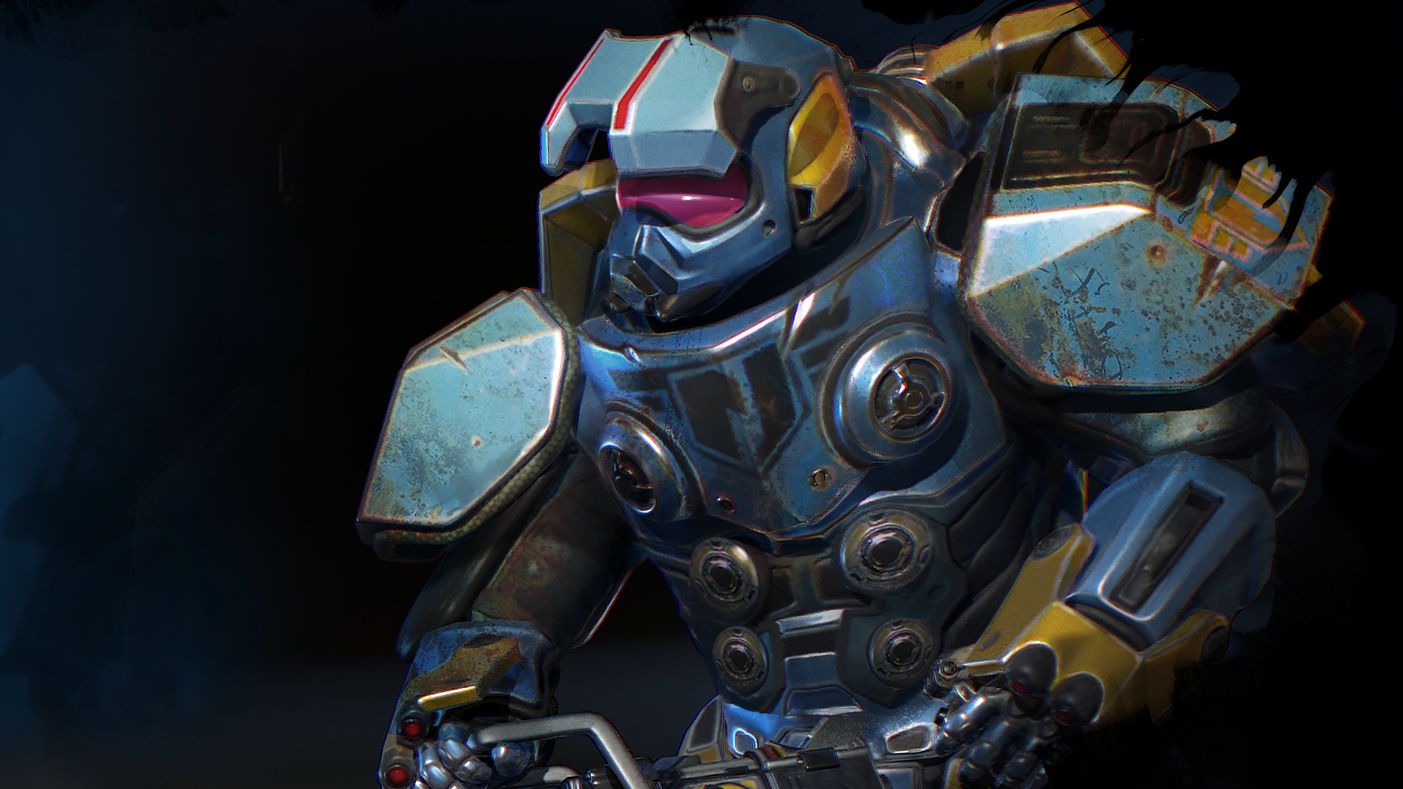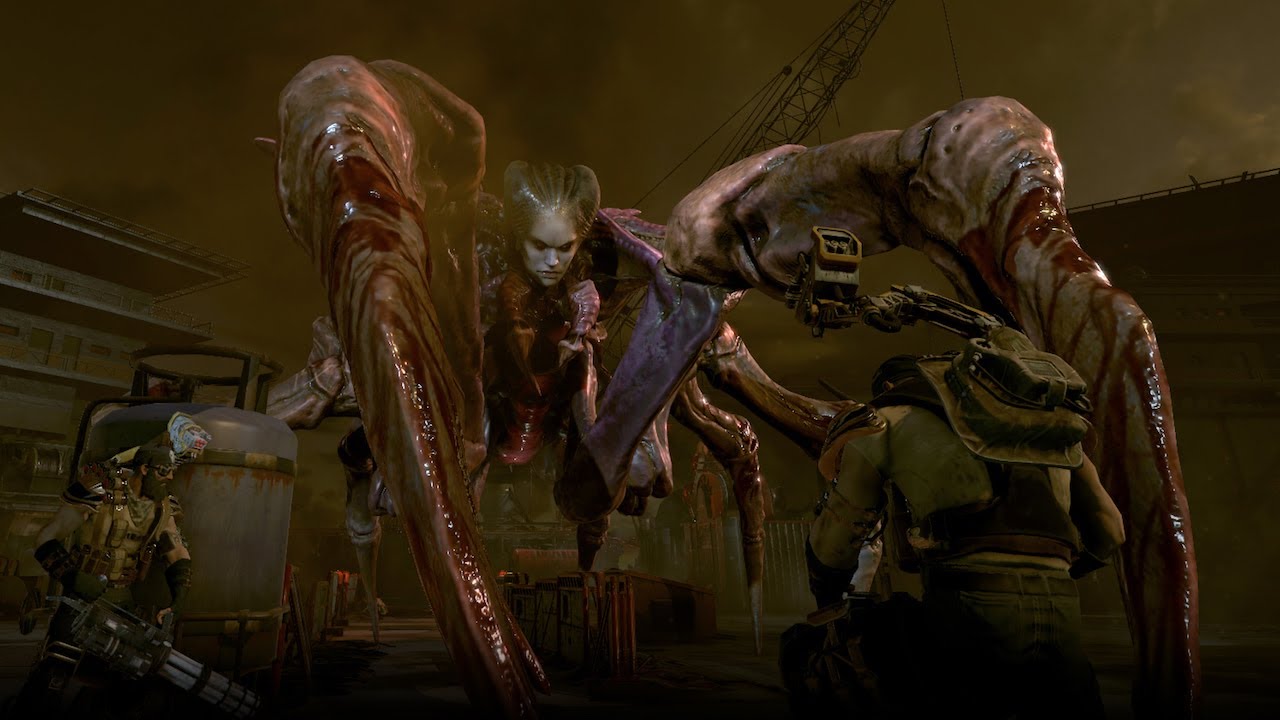The X-COM itch 'never goes away', says X-COM creator Julian Gollop
The developer talks to us about X-COM, Phoenix Point and board games.


Did you know Julian Gollop has written four columns for us, including subjects like the creation of the deckbuilder genre? Find them all here.
X-COM: UFO Defense, known as UFO: Enemy Unknown here in the UK, is an integral part of PC gaming history. It was part of the MicroProse glory days of the mid-'90s, when ground-breaking strategy games were being spat out at an unbelievable rate. It spawned sequels, questionable spin-offs, and multiple successors, spiritual and otherwise. It's an impressive legacy, and for creator Julian Gollop, the X-COM itch "never goes away".
While the X-COM/XCOM series is now 10 games deep, Gollop was only responsible for the original and Apocalypse, the third game. Of course, none of them would have existed without him, his brother Nick, and the tiny team of artists that built the game that started it all. And now you can't fire up a store like Steam or Epic without seeing countless turn-based strategy and tactics romps, many of them capitalising on the success of Firaxis's XCOM.
"XCOM was basically a triple-A turn-based tactics game that was immensely popular, and I think that's kind of broken the perception of turn-based games as being something old-fashioned and unappealing," says Gollop. "So I have a lot to thank Firaxis for that one."
Gollop also notes all the interesting turn-based tactical RPGs that continue to appear, especially the ones that draw from tabletop games, like Wildermyth and Gloomhaven. With this greater overlap between tabletop and digital, and so many more people getting into board games, there's an incredible amount of diversity, both in terms of the audience and the games themselves.
A quarter of a century after X-COM, Gollop and Snapshot Games released a spiritual successor: Phoenix Point. Like UFO Defense, the fight between humans and aliens could be a gruelling conflict, but one with a story, factions and a broader strategic conflict influenced by Gollop's love of tabletop gaming. And now Snapshot is calling it complete, with the Phoenix Point: Complete Edition available now, accompanied by DLC and Steam Workshop support. But does this final version match his vision for an X-COM follow-up?
The original vision was to not just recreate an X-COM-style game, but to bring something a little bit new to the table.
Julian Gollop
"Yes, it does," says Gollop. "But it kind of expanded a bit beyond it, because we explored some interesting options with the DLCs. It is the most in-depth and detailed tactical squad based game in existence. And it may remain that way for a long time. So obviously the whole team is immensely proud of what we achieved with it. And it was incredibly ambitious. I mean, the original vision was to not just recreate an X-COM-style game, but to bring something a little bit new to the table in the sense of how the world is represented, the faction interactions the story elements and so on."
Some of that ambitious vision caused issues initially, however, like the evolving alien threat that responded to player actions. "It did work kind of according to plan," says Gollop, "but the players didn't really see it very clearly, or it felt a little bit too random. One of our early complaints was difficulty spikes, because the aliens had developed some appendage, which was quite dangerous to the player, and they started using it because it was effective. So, in a way, I guess you could say it was a bit too good. So we had to try and tone it down so that the alien progression is a bit more gradual."
The biggest gaming news, reviews and hardware deals
Keep up to date with the most important stories and the best deals, as picked by the PC Gamer team.

There were also groups of players with very different expectations. A lot of the presentation and systems evoked Firaxis's XCOM, which is by no means a walk in the park, but it's considerably more accessible and less brutal than its predecessor. Players coming from that game, then, were not prepared for the ass-kicking they were about to receive.
"It is very difficult to get it right first time," says Gollop. And I must confess, we probably didn't in this respect, in terms of the difficulty progression of the game. Because Phoenix Point is less structured in the progression than, say, modern XCOM, it makes it even more difficult. On the one hand, we want to get the player to explore and experiment with stuff, and for different things to happen if they do different things. But on the other hand, we don't want to overwhelm the player and make them feel like they've been cheated. The game has got unfair advantages, it just doesn't feel fair. So yeah, it is a difficult balancing act. And we made so many changes along the way to try and address that. And I think the game is in a much better place."
It is very difficult to get it right first time.
Julian Gollop
One thing that became clear from the feedback is that, as well as the hardcore players who are hungry for a challenge, "there's probably a bigger group of players who are looking more for an experience, looking to experience the story or looking to experience character development". RPGs and strategy games have long had a close relationship, but it's even more evident now, and there's increasingly an expectation that certain RPG mainstays will also show up in squad-based tactics games.
With the future of Phoenix Point now up to the modders, Snapshot Games is moving on, but to what Gollop isn't saying. While the X-COM itch never goes away, that's not a guarantee that we'll be seeing another bit of alien-hunting squad-based tactics again. "We will be doing some different things," he says.
One thing that's clear is that he's still excited by tabletop games, and the digital ones they inspire. He's written about deckbuilders before, for PC Gamer, in fact, and continues to be a fan. "It is quite fashionable now," he says. "And I think that's great, because I really love Slay the Spire and love Dominion—I love that style of game. I also think it's really interesting that mechanics developed in board games are crossing over into videogames and becoming popular again. Because still, the board games space is definitely the most innovative space in terms of actual pure game design. And the fact that now, to some extent, there's a lot of videogames games now following the innovations from the board games space is quite cool."
While he's hesitant to act like an oracle and make big predictions about videogame trends, he expects deckbuilders to be around for a long time. "They will be a permanent part of the gamescape." And while this doesn't mean we should expect Snapshot to develop a deckbuilder, the symmetry of both Firaxis—with Midnight Suns—and Gollop working on deckbuilders is very appealing.

Fraser is the UK online editor and has actually met The Internet in person. With over a decade of experience, he's been around the block a few times, serving as a freelancer, news editor and prolific reviewer. Strategy games have been a 30-year-long obsession, from tiny RTSs to sprawling political sims, and he never turns down the chance to rave about Total War or Crusader Kings. He's also been known to set up shop in the latest MMO and likes to wind down with an endlessly deep, systemic RPG. These days, when he's not editing, he can usually be found writing features that are 1,000 words too long or talking about his dog.

